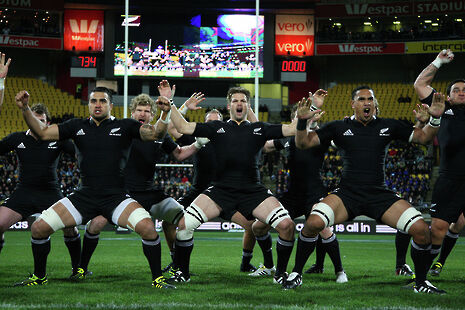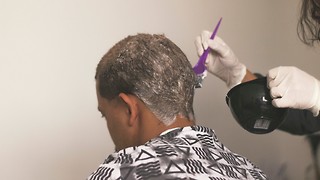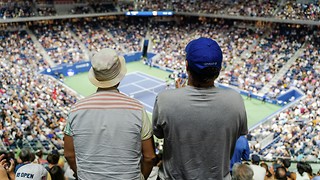The North-South Divide? What North-South Divide?
Columnist Ben Cisneros examines New Zealand’s unrelenting domination of world rugby, and outlines what the rest of the world can do in response

The days of the ‘North-South Divide’ in world rugby are over. The only divide now is that between the All Blacks and everybody else.
This season, as South Africa and Australia seem to be falling away during their clear ‘rebuilding’ phases, New Zealand have managed to find yet another gear.
Initially, one might seek to explain this by suggesting that the All Blacks, unlike their Southern-Hemisphere rivals, had managed to retain their most experienced players after the World Cup. But they have: and not only that, the All Blacks lost some of the world’s greatest players in their positions (arguably, of all-time) with the likes of Richie McCaw, Tony Woodcock, Keven Mealamu, Ma’a Nonu, Conrad Smith, and a certain Daniel Carter, all retiring with some 707 Test Caps between them.
Last weekend, the New Zealanders ran out 57-15 winners over South Africa – their record victory against the Springboks – as they finished the Rugby Championship with six wins from six. In fact, this latest victory brought them level with the World Record for a ‘Tier One’ nation of 17 consecutive wins: a run that shows no sign of abating soon. Indeed, with tests against Australia, Ireland (twice), Italy and France this autumn, 17 could quite quickly become 22.
Former All Black captain Sean Fitzpatrick commented after Saturday’s match that “they have taken rugby to a new level”, and it is not hard to see what he means. While they play in a less structured way compared with most other sides, this allows their game to be more about outstanding individual skills and rugby awareness: New Zealand’s prop forwards can pass and offload as well as – if not better than – most international backs.
And, in Beauden Barrett, they have a mercurial talent who brings something totally different to the No.10 jersey. Unlike most iconic fly-halves – such as Jonny Wilkinson or Dan Carter – he is not an outstanding goal-kicker, having converted only 65 per cent of his kicks during this year’s Rugby Championship. What he is, however, is an incredible footballer and a mesmerising runner with the ball in hand. He has scored seven tries in nine matches this season which, for a fly-half – particularly considering he was not even the first choice at the start of the season – is quite something. And with speed greater than that of many wingers, he is incredibly exciting to watch and arguably the best player in world rugby right now.
However, almost scarily, there are plenty of other Kiwi players of whom you could say the same. Israel Dagg and Ben Smith finished the Rugby Championship as tied top-try-scorers with five tries each, while forwards such as hooker Dane Coles, second row Brodie Retallick and captain Kieran Read were all outstanding. Newer faces in the back row, Ardie Savea and Liam Squire, scrum-half TJ Perenara and centre Anton Lienert-Brown also made great impressions as the latest batch of potentially world-class talents to come off the All Black production line.
Indeed, it is this succession planning which is a major reason for New Zealand’s continued success. By blooding young players into the starting line-up, able replacements, already with well over 30 caps each, were waiting to step in as soon as the McCaws and Carters of the team retired, a system for which credit must go to head coach Steve Hansen. And so we are seeing it again: players like Savea and Squire learning their craft, ready to replace Kieran Read and Jerome Kaino after the next cycle.
This system contrasts starkly with their Rugby Championship rivals. Australia, in particular, have suffered due to injuries, losing players like Matt Giteau, Kurtley Beale and Matt Toomua. Whereas New Zealand can seemingly replace one world-class player with another, Australia struggle to fill these gaps and, along with problems up front, have generally struggled to click this season.
South Africa are also going through a ‘rebuilding’ phase, after having lost some big names at the end of last year, including Jean de Villiers, Fourie du Preez, Schalk Burger and Victor Matfield. But they, like Australia, just do not seem to be firing properly and, despite maintaining their typically abrasive style of play, have failed to score a try in each of their last two games.
Then there is Argentina. Despite beating the Springboks this year, the Pumas are yet to reach their much-discussed potential. Promising signs of improvement – notably in a strong first-half against the All Blacks – are tempered by the fact that they are yet to put together the 80-minute performance required to compete consistently at the highest level. That said, this years inaugural version of Argentina’s own Super Rugby franchise, Los Jaguares, should help the country's rugby scene no end.
However, all three nations have another problem. Not only have New Zealand dealt with the post-World-Cup changing of the guard better than their Southern Hemisphere counterparts, but they have also started playing even better rugby than before. For example, in their six Rugby Championship fixtures, they scored an average of 44 points a game and conceded an average of only 14. And they score an average of six tries a match and concede only one, while South Africa only managed a total of eight tries in the whole tournament (30 less than the All Blacks overall).
However, the All Blacks are not totally infallible. Wales, Argentina and South Africa all showed that they can be caught off-guard in the first half, which can then go on to rattle them. And this has tended to occur when teams:
- Target the All Blacks scrum-half, Aaron Smith: he is key to much of their play and, if disrupted, may unsettle the whole team.
- Try to build a score in the first half: use attacking rugby of high intensity.
- Kick accurately out of hand: the All Blacks' back three are lethal, so put the ball into the stands!
- Dominate the breakdown: it is paramount to protect the ball against the All Blacks to avoid gifting them opportunities from turn overs.
- Keep it tight in the second half and try to stop the game breaking up: play for territory and seek out penalties to keep the scoreboard ticking over.
But this is, of course, all theoretical: to pull off such a game-plan for 80 minutes against the best team in the world would be a huge achievement for any side, and it is unlikely to happen before the British Lions series next summer.
And even then, it is hard to escape the feeling that it would require catching the All Blacks on an ‘off day’.
 News / Trinity sells O2 Arena lease for £90m12 August 2025
News / Trinity sells O2 Arena lease for £90m12 August 2025 Features / The community Cambridge accommodation creates (and doesn’t)9 August 2025
Features / The community Cambridge accommodation creates (and doesn’t)9 August 2025 Features / Incoming freshers and their hopes, fears and expectations for Cambridge 12 August 2025
Features / Incoming freshers and their hopes, fears and expectations for Cambridge 12 August 2025 News / Local group objects to ‘bulky’ new Christ’s library13 August 2025
News / Local group objects to ‘bulky’ new Christ’s library13 August 2025 Comment / Oxford wins the ceremonial Varsity13 August 2025
Comment / Oxford wins the ceremonial Varsity13 August 2025









